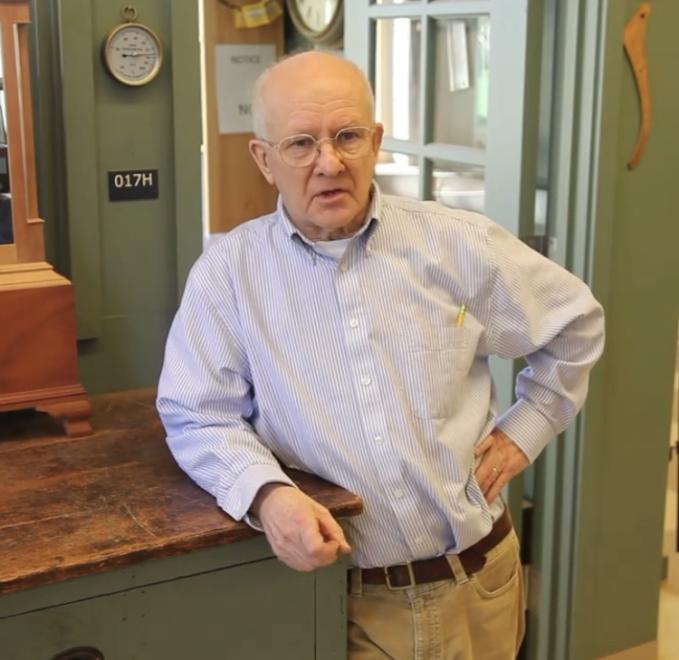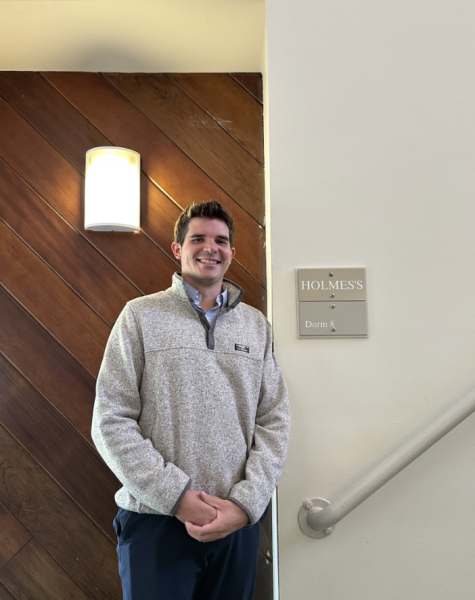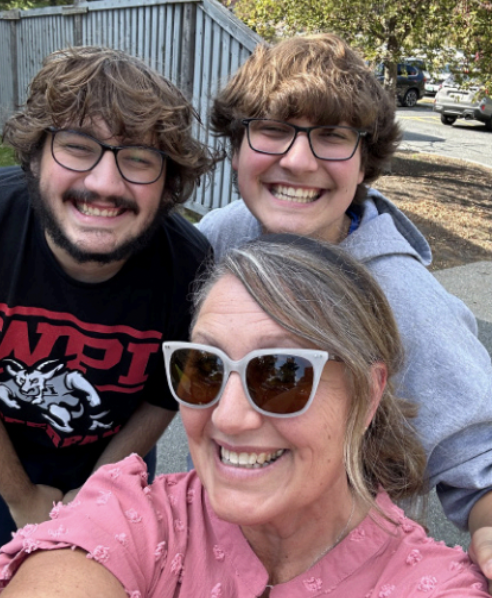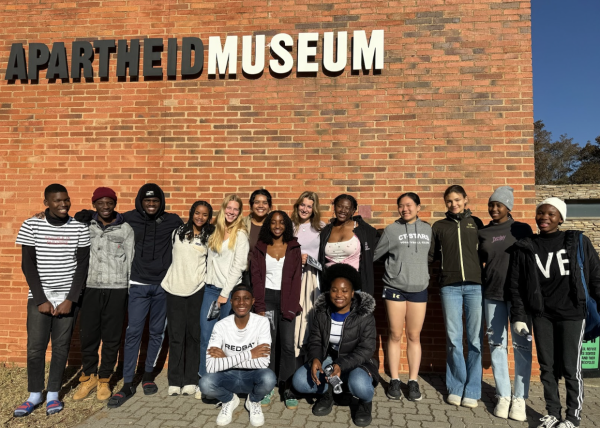Mr. Brown and His Retirement: Seeking Joy and Sticking With it
After five decades of teaching and attending Groton himself, Mr. Brown is retiring from the Circle. As he looks back at his years at Groton, he expresses a sense of joy which he has associated with the Circle. In addition to experiencing joy, Mr. Brown projected it back to the Groton community.
When asked about his experience here as a student, Mr. Brown’s first remark was simply: “I loved it.” Groton was a very different place in the 1950s, however, and “it wasn’t all wonderful happiness.” He recalled tightly-packed living spaces, strict rules, and having to obey the prefects and “master” in the dorm.
Mr. Brown graduated from Groton in 1957, earned an English degree from Harvard, and went to work at an organ-building company in Gloucester, MA. This job required knowledge of woodworking, Mr. Brown’s current expertise, but he “knew nothing about it before then.” He simply loved organ music and the instrument’s mechanics. In retrospect, he said that if he had known it was not going to be “sweet music all the time,” he “wouldn’t have done it.”
When he first started working there, Mr. Brown was treated like a “completely inexperienced gopher” and earned the minimum wage of $1.15 an hour. The job was difficult, and he often considered quitting and moving back home. He also received some harsh but wise words from his boss: “Don’t think your Harvard diploma is worth anything. You don’t know anything about building organs. This degree in English that you’ve got is great, but it doesn’t help me.” In the end, Mr. Brown decided to keep working at the company with a can-do attitude. He eventually discovered his passion for working with wood.
After building organs for nine years, Mr. Brown sought to become a woodshop teacher at Groton. “Because of my experience here as a student, I realized that this is the kind of place where I really would be happy,” he explained. The position was open, and once he started working on the Circle, Mr. Brown was ecstatic: “The teaching was fun — it was nice to be making furniture with kids, but I also had this huge amount of time and the whole facility here to do [anything that I wanted].”
And so, for fifty years, Mr. Brown found joy in his job. He figured, “Why leave that?” In fact, he had not taken any of the six or so paid sabbaticals he was offered until this past year when he decided that it was safest for him to take a break from teaching due to his high risk for Covid-19. “I mean I’m also old, I mean I’m tired,” he said, laughing.
He found that the religious atmosphere was what he liked the most. He described feeling a humbling connection to religion at Groton with an “otherworldly” aura, having an essence that extended beyond just those who attended and taught there.
In addition, Mr. Brown thought that the biggest change that has occurred at Groton over his time here is the expansion from two hundred students to almost four hundred. He described how a student knew everybody back then, especially within a form of 42 kids, making the community feel very intimate. In addition, a student would likely be taught by almost every teacher in school by the time they graduated. “You really felt you were all together, that you shared something,” he explained. “It really was a big family … but you all shared it together.” Since the school has expanded, however, this is not the case to nearly the extent that it was before, he said.
Looking back at his many decades on the Groton campus, Mr. Brown’s final sentiment was: “It’s been a wonderful fifty years and I’d do it over again in a minute.”






